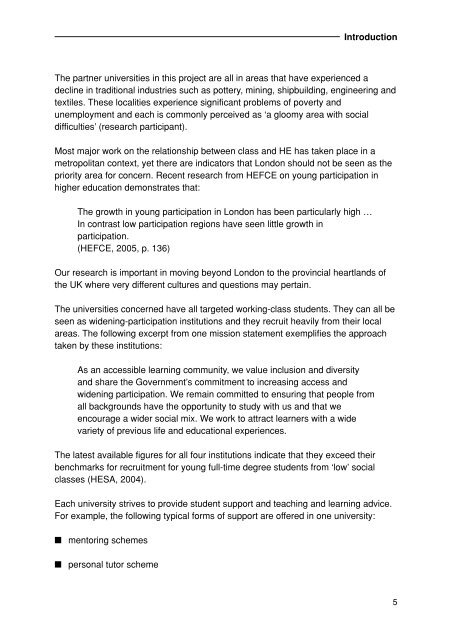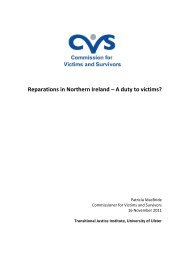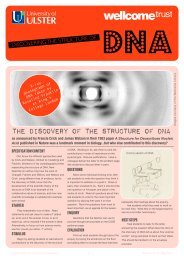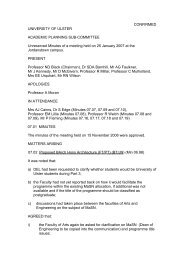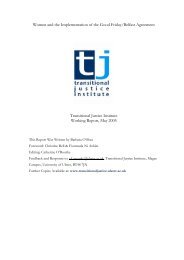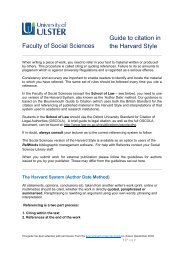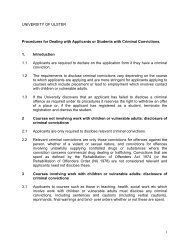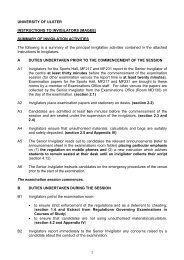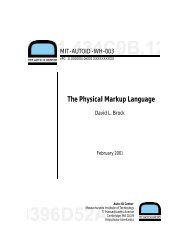From life crisis to lifelong learning: Rethinking working-class 'drop out'
From life crisis to lifelong learning: Rethinking working-class 'drop out'
From life crisis to lifelong learning: Rethinking working-class 'drop out'
You also want an ePaper? Increase the reach of your titles
YUMPU automatically turns print PDFs into web optimized ePapers that Google loves.
Introduction<br />
The partner universities in this project are all in areas that have experienced a<br />
decline in traditional industries such as pottery, mining, shipbuilding, engineering and<br />
textiles. These localities experience significant problems of poverty and<br />
unemployment and each is commonly perceived as ‘a gloomy area with social<br />
difficulties’ (research participant).<br />
Most major work on the relationship between <strong>class</strong> and HE has taken place in a<br />
metropolitan context, yet there are indica<strong>to</strong>rs that London should not be seen as the<br />
priority area for concern. Recent research from HEFCE on young participation in<br />
higher education demonstrates that:<br />
The growth in young participation in London has been particularly high …<br />
In contrast low participation regions have seen little growth in<br />
participation.<br />
(HEFCE, 2005, p. 136)<br />
Our research is important in moving beyond London <strong>to</strong> the provincial heartlands of<br />
the UK where very different cultures and questions may pertain.<br />
The universities concerned have all targeted <strong>working</strong>-<strong>class</strong> students. They can all be<br />
seen as widening-participation institutions and they recruit heavily from their local<br />
areas. The following excerpt from one mission statement exemplifies the approach<br />
taken by these institutions:<br />
As an accessible <strong>learning</strong> community, we value inclusion and diversity<br />
and share the Government’s commitment <strong>to</strong> increasing access and<br />
widening participation. We remain committed <strong>to</strong> ensuring that people from<br />
all backgrounds have the opportunity <strong>to</strong> study with us and that we<br />
encourage a wider social mix. We work <strong>to</strong> attract learners with a wide<br />
variety of previous <strong>life</strong> and educational experiences.<br />
The latest available figures for all four institutions indicate that they exceed their<br />
benchmarks for recruitment for young full-time degree students from ‘low’ social<br />
<strong>class</strong>es (HESA, 2004).<br />
Each university strives <strong>to</strong> provide student support and teaching and <strong>learning</strong> advice.<br />
For example, the following typical forms of support are offered in one university:<br />
■ men<strong>to</strong>ring schemes<br />
■ personal tu<strong>to</strong>r scheme<br />
5


